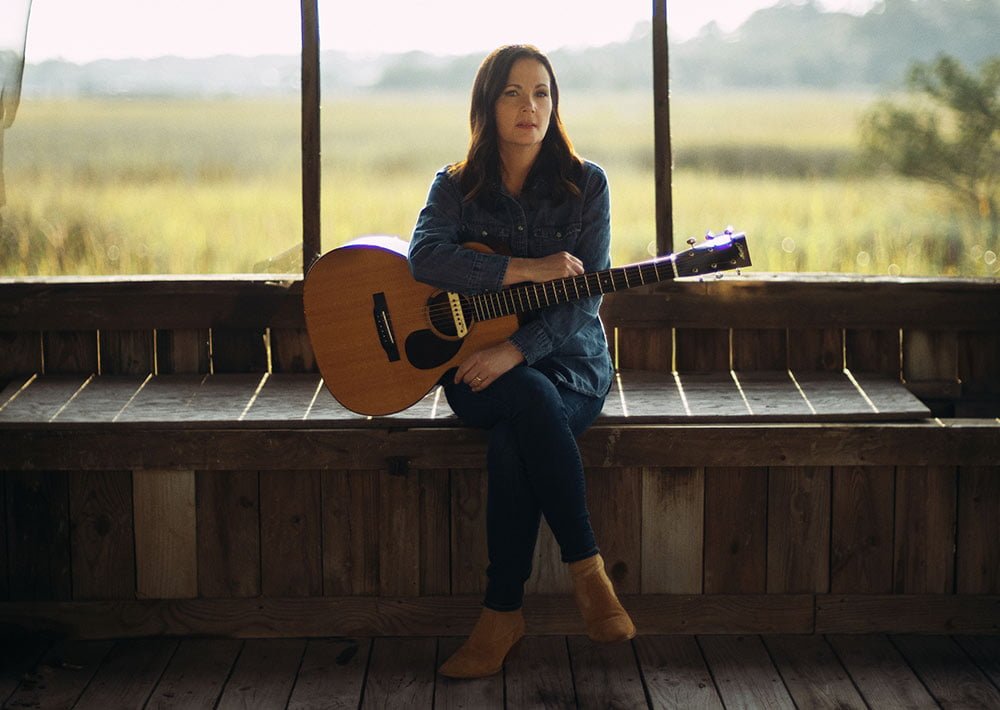
Lori McKenna: “Sometimes there’s so much to say and a list is the most efficient way to get there” Photo: Becky Fluke
We chat to one of America’s very finest songwriters about their new album and harnessing the power of the list
It’s no exaggeration to say that Lori McKenna is one of the very finest songwriters out there. Whether a co-write or a sole composition, writing for herself or another artist, her body of work has a clear identity. Take the Grammy-winning single Humble And Kind, first released by Tim McGraw in January 2016, which acts as a list of lessons/virtues McKenna wanted to pass on to her husband and children. Including holding the door for people, eating root beer popsicles and visiting your grandpa, it’s that blend of the specific and the universal, often wrapped up in a list, that makes her words so moving – and explains why she’s so in demand.
Something of an outlier in the country scene, McKenna is still lives in her home town of Stoughton, Massachusetts. Over 1,000 miles from Nashville, that distance hasn’t held her back. As well as a career as a writer who has landed cuts with the likes of Faith Hill, Keith Urban, Little Big Town, Carrie Underwood, Taylor Swift and many more, McKenna’s solo work often presents the truest expression of her artistry – if you’re looking for a starting point, we’d point you to 2016 album The Bird And The Rifle as it presents a singer-songwriter at the very peak of their observational powers.
Aided by producer Dave Cobb, her latest album, 1988, was released back in July and finds McKenna in a slightly more rocking mood. Don’t worry, the balladeer is still there, but she’s infused songs like Days Are Honey and Letting People Down with a little more swagger. As you’d expect though, her eye for detail and ability to transport you back to the comfort of your family are as strong as ever and this time she’s looking to her future self to help signpost the way (The Old Woman In Me).
One of our albums of the year, we caught up with McKenna to learn a little more about its creation…
Congratulations on 1988…
“Thank you, it’s been super fun releasing this album. The last time I released a record was July of 2020. It was very different because we were in lockdown.”
Do you set time aside to write songs for a Lori McKenna album or are you always writing songs and then at some point you’ll have a batch that you think could be an album?
“That’s what I do. I love writing and I love co-writing, it’s my favourite part of the process. Basically, my job is to write songs every day. With the album cycles, I’ve been doing a record every two years or so. What will happen is a song will pop out and I’ll be like, ‘Oh, I really like this,’ and I’ll start playing it in my little shows to see if the audience likes it and then I’ll have a start. It’s always about age lately, it was The Old Woman In Me this time.
“It’s so funny because I don’t sequence my records, Anderson East sequences them for me. He’s not there for the process, I just send him the songs and then he sequences them because he’s a master at it. I’m not good at knowing what flows into what and the fact that he picked The Old Woman In Me [to open the album] … On The Tree he actually called me and he said, ‘Is it okay if I do A Mother Never Rests first or is that too much?’ and I was like, ‘Whatever you think is right.’ On this one he didn’t even ask, but The Old Woman In Me was really the foundation of, ‘Okay, I have this and this is what I want to talk about. This is what I want to explore a little bit.’
“It ends up being a few songs and then I try to see what I can get in from there. What do I want to play every night? Which songs wake me up cos they’re in my head again, and things like that. But this one was a little different, because these songs are all fairly new. Killing Me, Days Are Honey and Letting People Down… by that point I knew I wanted to make it more rock, I wanted to move a little bit more, which isn’t natural for me. So when I went in with Luke Laird and Hillary [Lindsey] and we wrote Killing Me, I told them I wanted to make a 90s rock record. What would my version of that be?
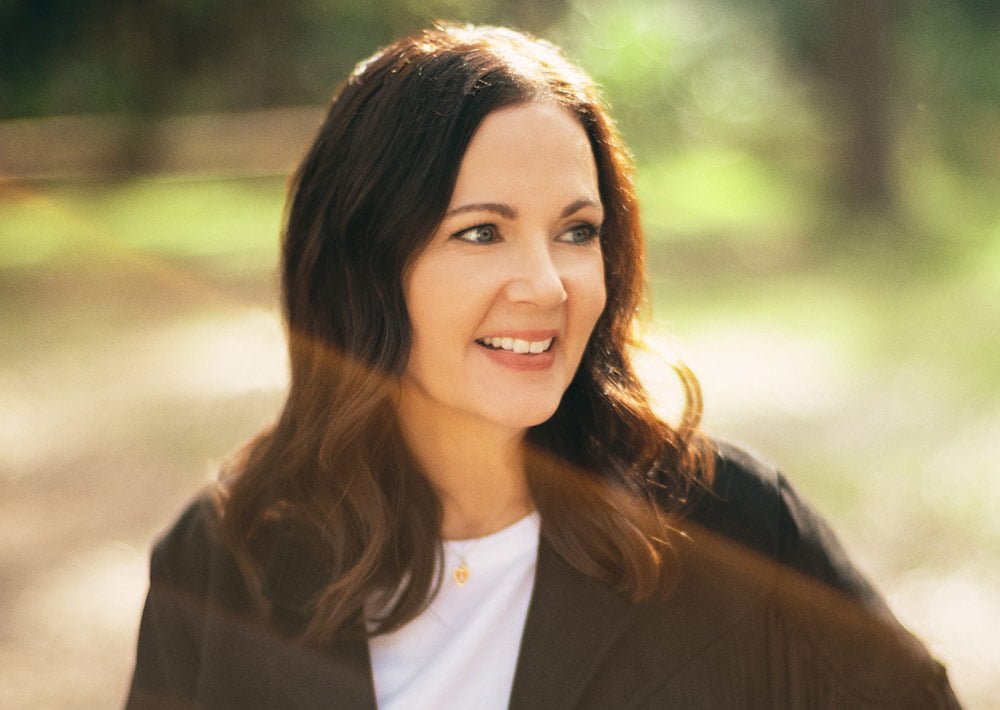
Lori McKenna: “My singing helps my playing and my playing helps my singing.” Photo: Becky Fluke
Do you tend to start with the music or the lyrics?
“That started with lyrics, which I’m best at, my brain works best that way. I had the lyrical hook for Killing Me, the lyric, ‘Would it kill you to be happy/Because trying to make you happy is killing me.’ And when I said the words, at one point, Luke goes, ‘Lori that’s so good.’ It’s so encouraging the way we all talk to each other. And then the track… I just loved the way it came out.
“That did start with lyrics, with Luke pushing me, because he’s really great at that, saying, ‘What would it sound like if this was a Sheryl Crow record in the 90s?’ It’s really fun and those are people that I get to work with all the time. I trust them, and they’re also were willing to spend the day writing for my record versus a big artist’s, which is so lovely.”
Your lyrics are always so strong and often feature a key phrase or a list. Where does the ability to do that come from and how much did you have to learn and hone that ability?
“I think the list is super natural for me. I am a list maker. I hate to say that I feel like I’m cheating by making a list, but sometimes the best way to tackle an idea is to just make a list… ‘The old woman in me feels this way…’ Humble And Kind is just a list and Happy Children is too. I am a super list maker. I don’t know if I get in trouble for that, but sometimes there’s so much to say and a list is the most efficient way to get there.”
And also dropping in very specific details, is that something else you find can elevate the song?
“I do take care to try to do that. I like songs that explain to you in great detail what the room looks like, but maybe not what the people are feeling. So we’ve described what the room they’re sitting in looks like, and then that makes us, the listener, decide. You can say a detail that makes you understand so much more about the person or the emotion of the song… I love that stuff.
“Greg Brown has a song called Brand New ‘64 Dodge that makes me cry every time I hear it. There’s no chorus. There’s a line in there where he says, ‘And Dad looks like he might smile,’ and you know so much about that dad now. With just one line you know that guy. I love whenever you can tackle something like that, where just by explaining what’s in someone’s room, the listener can put themselves in the story.”
Are you therefore a keen observer of people and places, always mining things you see for potential song ideas?
“I try to. When I was younger someone said, ‘Hey, there’s songs everywhere,’ I would listen, but I’m such a domestic writer. My lyrics are so simple. They’re not very poetic at all. I had a day with an artist that was in the studio and was looking for some help with some lyrics. We jumped on Zoom. The way he writes is very poetic and I’m just like, ‘What did the street look like? What did your house look like?’ I’m so general. But when you meet those two things, you can be like, ‘How can we put a gritty line here?’ Then you can get a verse that has a poetic line, then a real domestic line, then a matter of fact line that leads to an imagination line – Oh my God, you can’t get a better verse than that.
“So it’s really good for me to write with someone that’s so poetic, because I don’t lean in that direction. For someone that’s very poetic, it’s good for them to meet with the list maker in me. That’s why I love co-writing so much, because there are so many millions of ways to get at it. It’s just so beautiful.”
Can you tell us about some of the co-writes on this album?
“My kids are on this record, which is great. I write with my kids and it’s awesome. I wrote Happy Children with my son, Chris McKenna, and I wrote 1988 with my son, Brian McKenna. I also got to work with Stephen Wilson Jr. on The Tunnel. The way he writes is so guttural, as soon as I heard one of his songs I was like, ‘Who is this and how did he do that?’ So I go to write The Tunnel with him and Ben West. That was really fun for me. We wrote for Stephen’s record, and I asked my publisher if they would write with me for my record. I had the idea of The Tunnel, how it seems like life is mostly the tunnel for you. I had that idea and asked them if they would help me write that idea.
“We just had a great day and I love what Stephen does so much. He makes you braver about your emotions, he brings that out of you. I’ve still never met him in real life. When we wrote for his record, we wrote on Zoom, and when we wrote The Tunnel, I went to Nashville to write and he got COVID. So Ben and I were in the same room, and Stephen was at his house.”
Any other examples?
“Jessie Jo Dillon is a friend and I’ve written with her before, but this is the first time I’ve cut a song that I wrote with Jesse Joe, The Town In Your Heart, also with Dustin Christensen, who I love. The two of them came to write and I almost cancelled the session because the day they arrived, they flew in from Nashville, my brother-in-law passed away unexpectedly. It was like, ‘Should I cancel the session?’ They had hotels and flights and all these things, and my husband said, ‘No, have them come, we don’t even know what’s happening yet.’ It was a crazy time.
“I knew this about music, that it helps you with everything. They knew what they were stepping into, and they stepped into it knowing that we might get songs, we might not get songs, we might just sit and stare at each other. They both came here with such a loving heart and we wrote three or four songs in a couple of days and this was the last one we wrote. This was the day that they really just found the thing, you know, my husband losing his brother. They took it on. It was Dustin’s title, The Town In Your Heart.
“We all cried but we were also in shock and numb at what was happening. But it was also the idea that music can meet you where you are, no matter where. Even if you don’t know where you are, music will meet you there. And your friends that think the same way, as far as music, will help you. It was such a loving exercise of how co-writers can really be therapists. It was a beautiful experience and I will always love them for that.”
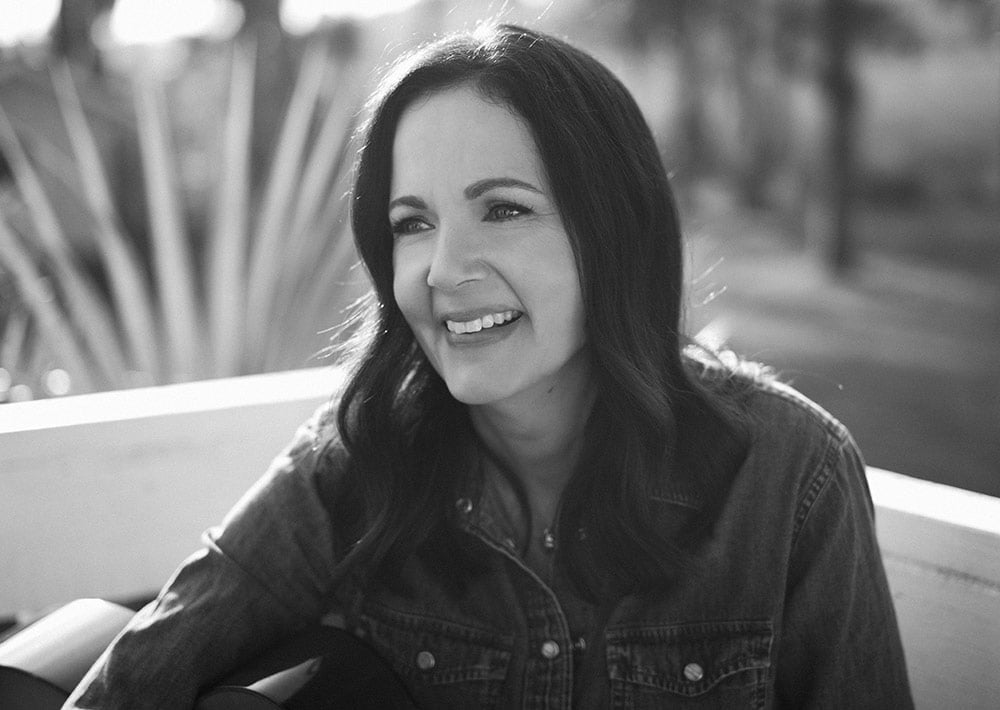
Lori McKenna: “Songs are like kids, you send them off in the world and they have their own lives.” Photo: Becky Fluke
Have you done so many co-writing sessions now that you’re an open book in whatever room you walk into, or do you need certain things to make you comfortable?
“Lots of people just write alone and I feel like co-writing opened a million doors in my head. Maybe it’s because I’m the youngest of a big family, but I’ve never had the switch in me that I would hold in something if I was afraid. With co-writing, I always say, ‘This might not be it, but could it be this…’ I’ve seen it a million times that I might say something dumb, but it’s gonna make you think of something really smart. It opens up a different way of thinking for your co-writers. So you have to feel safe in the room.
“I’ve watched my co-writer friends that are really good with it. Artists coming in that nobody knows, and I’ve watched like people like Barry Dean or Hillary Lindsey pull out of them something that they don’t know that they can share yet. Not to push, but just enough where it’s more than they thought that they had the ability to share in a song and it’s shared in a way that they feel comfortable with. They don’t feel like somebody made them say something that they weren’t willing to share. You never want that because then they just won’t cut the song.
“But if you reach in and help somebody pull something out, if you know those ways of saying, ‘Well what was it like growing up with your mom?’ or, ‘How did that relationship end?’ whatever the talk is about… There’s a little bit of a pain button like, ‘I know you’ve just had a breakup but…’ and I’ve watched my friends be so masterful with that, using song as the vehicle but knowing the artist is in charge.”
That must be a tricky balance?
“You can’t push them too much, because they will forget about the song, but the song wants to push you a little bit because that’s what they’re for. I’m usually pretty comfortable in a room unless I feel like there’s someone else that isn’t comfortable, because I don’t want anybody else to feel uncomfortable. If I feel safe with somebody, and I feel like I can make them feel safe, those are the best days.”
We’ve been talking a lot about your lyrics, but where do you stand on the musical side of things?
“The musical side, I mean, I’m certainly limited. That’s another reason why I love co-writing so much, because I can hear something and be like, ‘Oh, I love the way they do that but I don’t know how they did it.’ So many of my co-writer friends can do anything. I really did want this record to move a bit more… I’m such a ballad person. My right hand, my strumming hand, can do two things: slow or slower. My beats per minute is usually in the 70s. That’s where my brain understands emotions.
“The best songs come with when those things happen at the same time. Like on Killing Me, listening to Luke and Hillary playing and dropping that hook in there… when it comes together that line will make the rhythm change a little bit – Luke will change the way he’s hitting with his right hand. When those two things find each other and they act like they always wanted to be together, it’s great.
“But I usually do start with a lyric idea and then try to find, ‘What would that lyric want to sound like?’ When working with Ben West for The Tunnel, he’s a producer and a piano player, or Dustin Christiansen (The Town In Your Heart), they’re really fun to write with because they can just play anything on the piano. Sometimes they’ll play a mood and I’ll try to be like, ‘What does that feel like?’ When we tracked, we didn’t have a piano player in the room. I’m just playing acoustic and so is Dave Cobb. Dave then overdubbed all the electrics. So Dave is just meeting me where I can play the most comfortably and then he took it from there.”
With your instructions or just knowing the general direction and feel you wanted for the album?
“We had talked on the phone a couple of times and they still make fun of me like, ‘This is Lori’s rock record.’ They’re so used to me being in ballad land. We tracked live and I don’t think I can do it any other way. I can’t listen to a click track and all those things. So Dave and myself were sitting with acoustic guitars, and the bass player, Brian Allen and the drummer Chris Powell. We all sit in a room together, I play the song and Brian Allen charts out what I’m doing. Chris will follow along at my pacing. Then Dave will immediately find A) am I in the right key for my voice? And B) where does this land?
“On Letting People Down I was rushing through it and he was like, ‘Wait a minute, let’s bring this back, because I’m not even understanding what you’re saying.’ So we will play the song together in the room a couple of times and Dave finds where it lands as far as tempo. Then he works with Chris as far as like, ‘Do this,’ or, ‘Play it this way.’
“On this record there wasn’t a tonne of Dave changing a baseline or anything. They are so good, those three. The way they work together reminds me of the way Little Big Town sing together, they can read each other’s minds. It was so much fun to be part of that. Dave is playing guitar with me, because I can play but I can’t play great. He can. So he’s playing rhythm with me and that makes me play a little bit better than I would normally. I have to sing and play at the same time. If Dave is just playing, and I’m singing, I’m gonna sing very differently. The way I sing, I have to be playing along.”

Lori McKenna: “I’m always writing the same song but finding different ways of writing it.” Photo: Becky Fluke
Because otherwise you’re thinking about singing too much?
“I think so yeah. I think that’s what’s happening. The two things are just connected, it’s the way I’ve always done it and they sort of help each other. My singing helps my playing and my playing helps my singing. My publisher and my manager told me years ago that writing for myself helps me write better for other people. So it’s the same thing. I need both those sides of it. They build the foundation for one another in that way. It’s a whole piece together.”
What are your hopes for the songs once they’ve been written and recorded and are out there in the world?
“Songs are like kids, you send them off in the world and they have their own lives, whether it’s a song I’ve co-written that an artist puts out or one I did. I really feel lucky that I get to do this. Every couple of years I get to put out ten or eleven songs that I feel very close to and I get to share them through my own self. I really just want them to find people that they mean something to.
“I’m very self-centred in the way I write, I very much write for myself, but I hope I do it in a way that makes other people feel things, that’s really what I want to do. I don’t necessarily mind if it’s something they wish they didn’t feel, if it’s something that they should feel. I like those songs that send me off the edge like, ‘Oh my God, how did they do that?
“I recently heard that Tom Rush song Child’s Song. It was written by Murray McLaughlan, who is a Canadian singer-songwriter. It’s a child’s perspective of leaving home. I was driving and I almost drove off the road. I love that, and I love it when people call me and say, ‘Well thanks a lot, you ruined me.’ We’re supposed to feel things and life gets crazy and sometimes we don’t feel things.”
Lastly, we just want to say that, in the best possible way, we tend to be able to pick up on a song that you’ve written for someone else before knowing it’s you. What would you put that down to?
“Gordie Sampson has this joke that we all only write one song. He’ll joke about it, like, ‘I love that song you write!’ It’s so true of me. I’m always writing the same song but finding different ways of writing it. Because, ‘What are my core values? What are the things that I like to talk about? What are the things that I feel comfortable talking about?’ I live in the town I grew up in, I feel comfortable with town songs. So if an artist shows up, and they want to write a town song, I’m like, ‘I’m here for that.’ And I do the same thing that you’re talking about. Like, if I hear a song, sometimes I’ll be like, ‘I know Tom Douglas wrote that,’ and I’ll look it up. I love it that you do that and that you know my music. I feel very blessed for that. So thank you.”


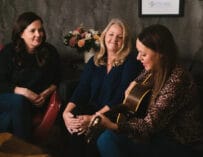
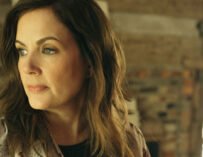




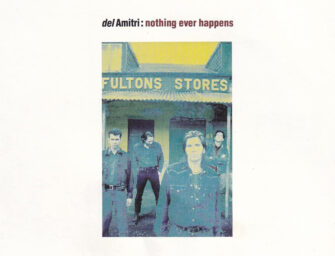

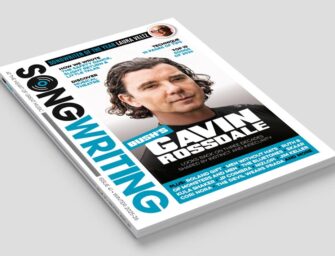
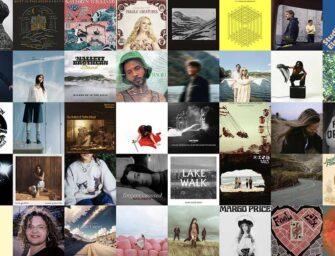























Related Articles